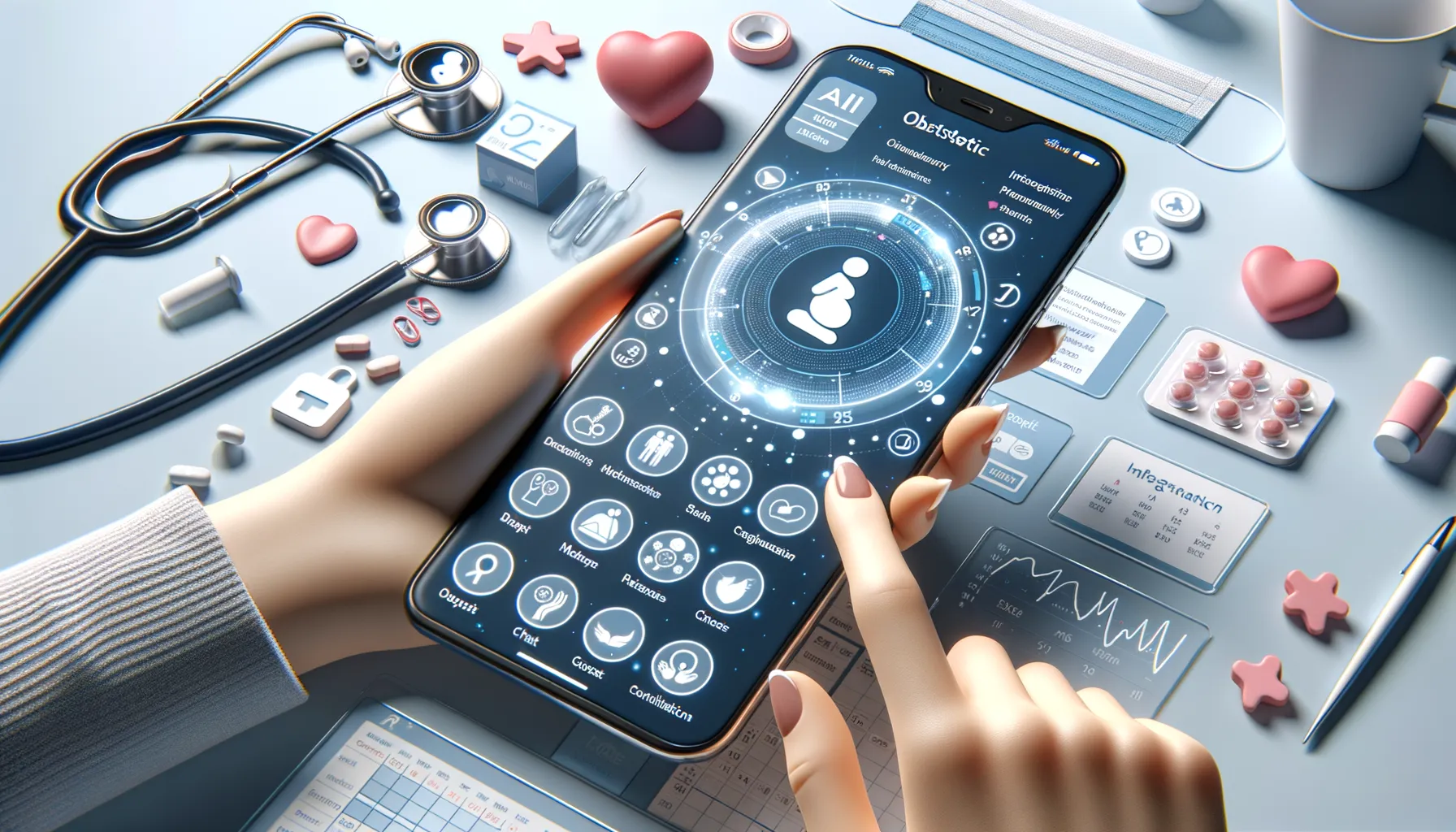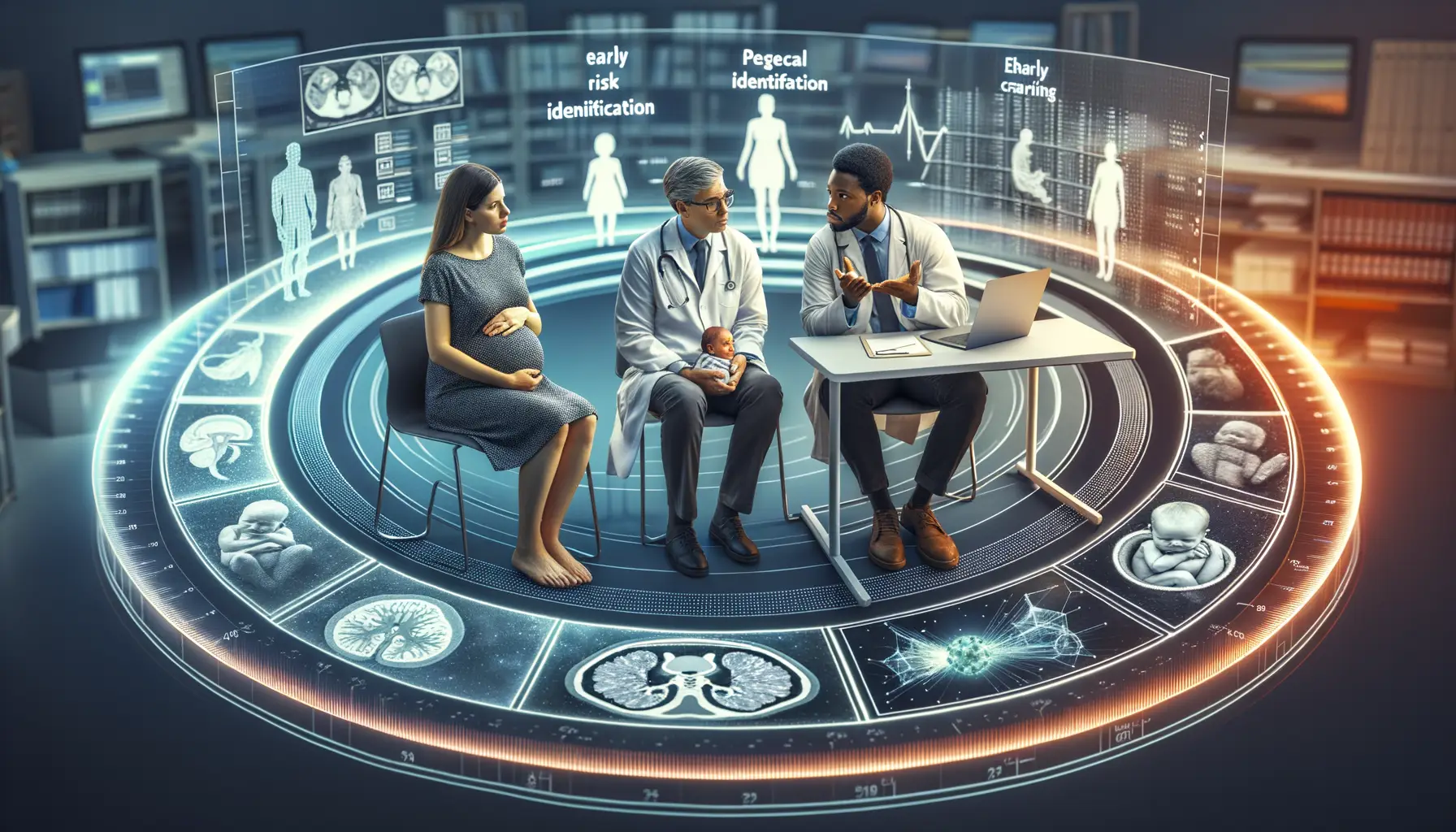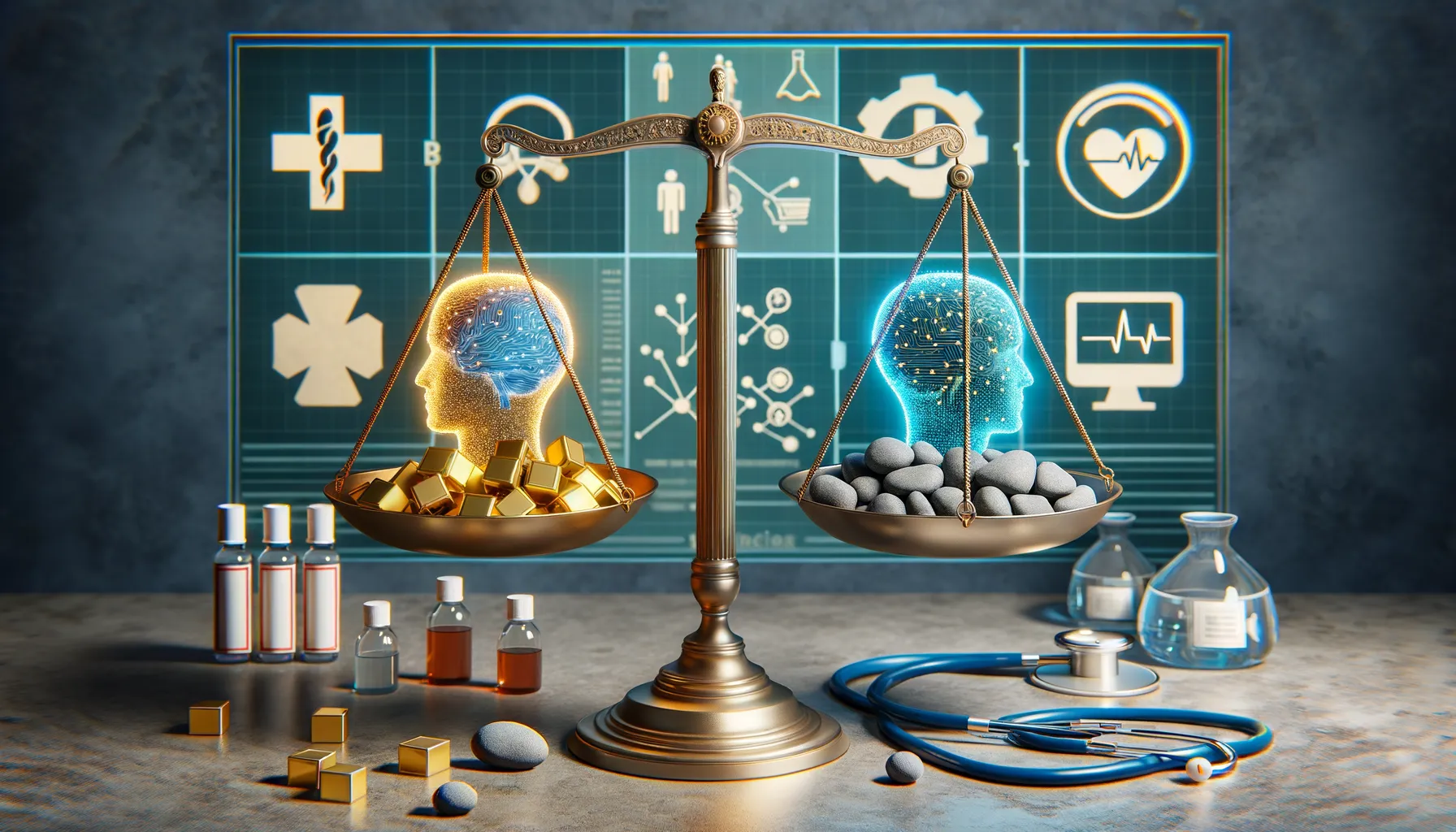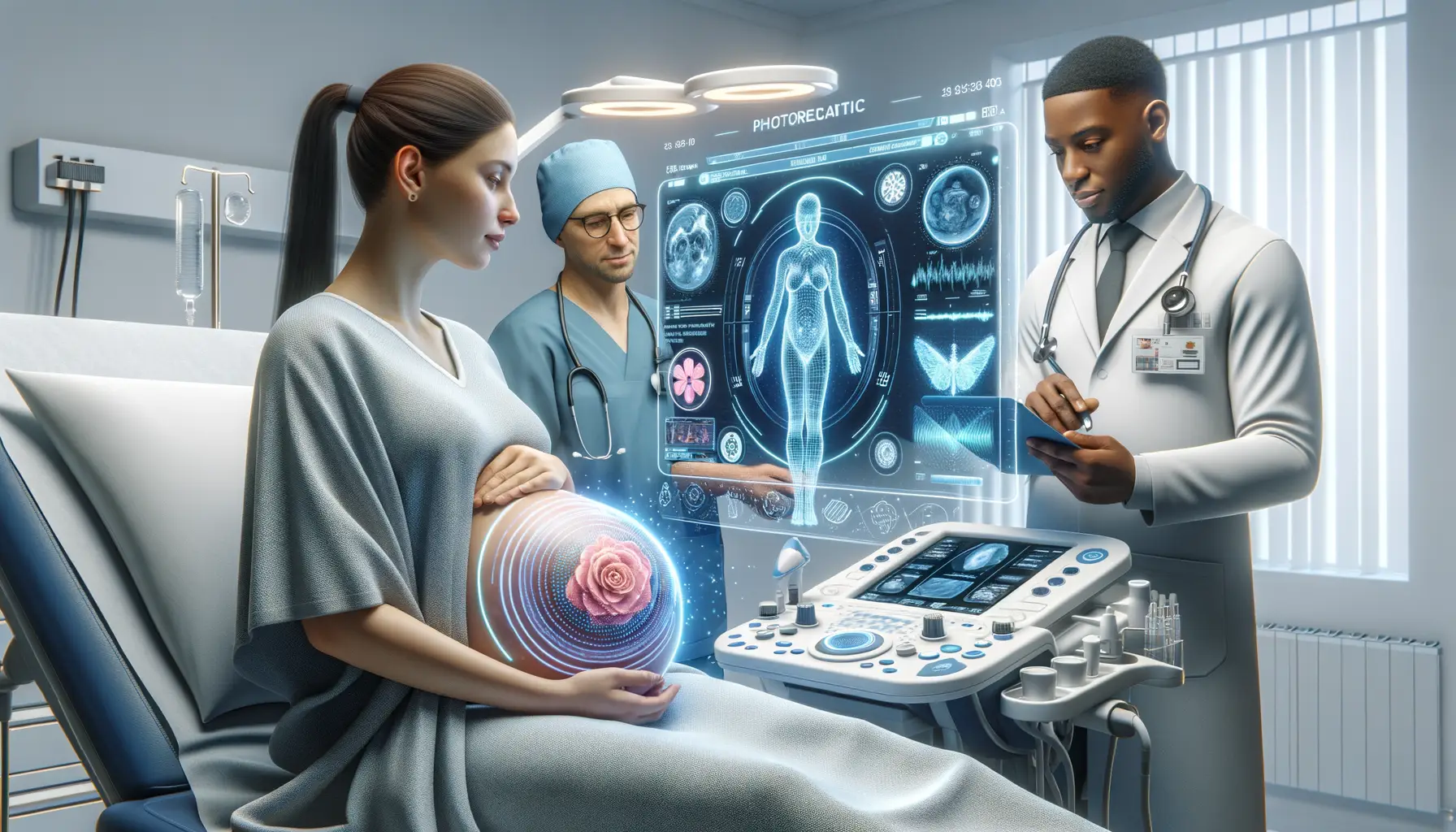Understanding the Role of AI in Obstetric Risk Detection
AI as a Guardian for Maternal Health
Imagine having a sharp-eyed guardian by your side, tirelessly watching for tiniest signs of trouble. That’s what AI brings to obstetric risk detection—a digital sentinel that spots potential risks long before they come knocking. This isn’t just technology working in the abstract; it’s real-time help for mothers-to-be and their healthcare providers.
AI dives deep into oceans of data—think patient histories, genetic factors, lab results—and picks up on patterns no human eye could catch. For example, it can predict conditions like preeclampsia or gestational diabetes far earlier than traditional methods. And we’re not talking vague warnings; these insights are laser-focused, often offering actionable steps to mitigate risks.
- Natural Language Processing (NLP): AI analyzes doctors’ notes and patient feedback to extract key health trends.
- Machine Learning: Algorithms learn from diverse case histories, growing smarter and more precise with every data point.
From Data Dots to a Full Picture
What’s fascinating is how AI connects dots that seem unrelated. Say a pregnant woman has mild hypertension, a history of migraines, and slightly elevated protein levels. Alone, none of these may sound alarms. But put them together? AI might flag the possibility of early-stage preeclampsia—a potentially life-threatening condition—and suggest immediate monitoring. It’s like turning puzzle pieces into a life-saving picture.
This ability isn’t just about numbers; it’s about lives. AI apps are leveling the playing field, delivering high-quality care to rural areas where specialist access might be limited. For every mother who dreams of a smooth pregnancy journey, AI offers an extra layer of assurance—a steady hand in unpredictable waters.
Key Features of AI-Powered Obstetric Apps

Smarter Pregnancy Tracking with AI
Imagine having a personal assistant for your pregnancy—one that never sleeps, never forgets, and always knows the latest medical research. That’s exactly what AI-powered obstetric apps bring to the table. These apps dive deep into massive amounts of data, from medical records to individual physiological changes, and transform it into actionable insights.
One standout feature? The ability to predict potential complications like preeclampsia or gestational diabetes weeks before symptoms arise. It’s as if the app has a crystal ball, but instead of magic, it’s powered by sophisticated algorithms. For example, an expectant mother might get a friendly alert saying, “Your blood pressure trends suggest you should check in with your doctor.” Personalized, timely, and life-changing.
- Real-time monitoring: Many apps sync seamlessly with wearables, offering 24/7 tracking of vital signs such as heart rate and oxygen levels.
- Tailored recommendations: Whether it’s suggesting a diet tweak or reminding you to stay hydrated, these apps cater to YOUR body and your journey.
Empowering Decisions with Data
Let’s talk about decision-making—the cornerstone of safe pregnancies. These apps don’t just monitor risks; they empower you and your care team. By offering easy-to-understand graphs, trend analyses, and custom alerts, they take the guesswork out of prenatal care.
For instance, instead of vague advice, you might see something like: “Your baby’s growth curve shows excellent progress!” or “Contact your provider about today’s reduced movement patterns.” This is more than tech; it’s like having a trusted companion, one who’s quietly working behind the scenes to keep you and your baby safe.
Benefits of Early Risk Identification in Maternal Care

Why Acting Early Matters for Maternal Well-Being
Pregnancy is often described as a journey, but like any adventure, it comes with unexpected twists and turns. The earlier we spot potential detours, the better prepared we are to chart a smooth course. In maternal care, early risk identification can be nothing short of life-changing.
Take a moment and imagine this: a mom-to-be in her second trimester feels perfectly fine, but beneath the surface, her blood pressure begins to creep upward. With traditional methods, this might not be flagged until symptoms appear. But with advanced tools like AI-driven apps, subtle changes don’t go unnoticed. This means conditions like preeclampsia or gestational diabetes can be flagged long before they escalate into emergencies.
- Peace of Mind: Knowing you’re proactively monitoring risks allows both moms and their families to focus on the joys of pregnancy.
- Healthier Outcomes: Conditions caught early mean timely interventions—whether that’s lifestyle tweaks, medication, or closer monitoring.
Early detection isn’t just about complications; it’s about creating a safety net. A reliable companion on this journey, ready to whisper, “I’ve got your back,” before challenges arise.
Challenges and Ethical Considerations in Using AI for Healthcare

Delicate Balancing: Technology Meets Humanity
Artificial intelligence in healthcare is undeniably groundbreaking, but when applied to something as deeply personal and complex as obstetrics, the stakes rise higher than ever. The beauty—and challenge—of AI in maternal care lies in its incredible power to analyze data at lightning speed, but that precision can sometimes clash with the unpredictability of human biology and emotions.
Here’s the crux of the ethical tightrope: Can an algorithm truly understand the anxiety of an expectant mother? Or the cultural nuances around childbirth that vary so widely across societies? These are not just “what if” questions—they’re very real dilemmas clinicians face when integrating AI tools.
- Bias baked into algorithms: If the training data reflects societal inequalities, AI predictions might overlook risks for certain demographics.
- Over-reliance on technology: What happens when doctors trust AI over their own judgment? Could it erode the human touch patients rely on?
- Data privacy dilemmas: Storing sensitive medical details demands unmatched vigilance. A single breach can shatter trust forever.
At its core, this dance between tech and humanity asks us to constantly recalibrate. After all, no matter how smart the AI, pregnancy is—and will always be—a profoundly human journey.
Future Prospects of AI Applications in Obstetrics

Transforming Maternal Care with Tomorrow’s Technology
Imagine a world where pregnancy complications are anticipated, not reacted to. Where an algorithm becomes a second set of eyes for doctors, catching subtle patterns even the most experienced human might miss. That’s the future we’re heading toward with AI in obstetrics—and it’s closer than you think.
Advanced AI models are already being trained to spot risks like preeclampsia or gestational diabetes early, based on everything from biometric data to patient history. But what’s next? Think wearable devices that sync effortlessly with AI apps, translating real-time health data into actionable insights. Picture your smartwatch alerting you to hydration levels or changes in heart rate that could indicate potential issues.
- Predictive analytics: forecasting complications weeks before symptoms arise.
- Personalized care plans: tailored routines based on a mother’s unique biology and lifestyle.
- Language-inclusive tools: AI apps breaking barriers for patients with diverse linguistic backgrounds.
Bridging Gaps Between Technology and Empathy
You might wonder—can AI truly balance precision with compassion? The answer lies in how these tools are designed. Future apps may not only flag risks but also support emotional well-being. Virtual assistant-like features could offer guided meditations for stress or suggest practical ways to improve sleep quality.
The potential here isn’t just revolutionary; it’s deeply human. This isn’t about replacing doctors or midwives but empowering them and parents-to-be with sharper, faster, and kinder insights. A safer, brighter journey to parenthood could soon fit right in your pocket.





